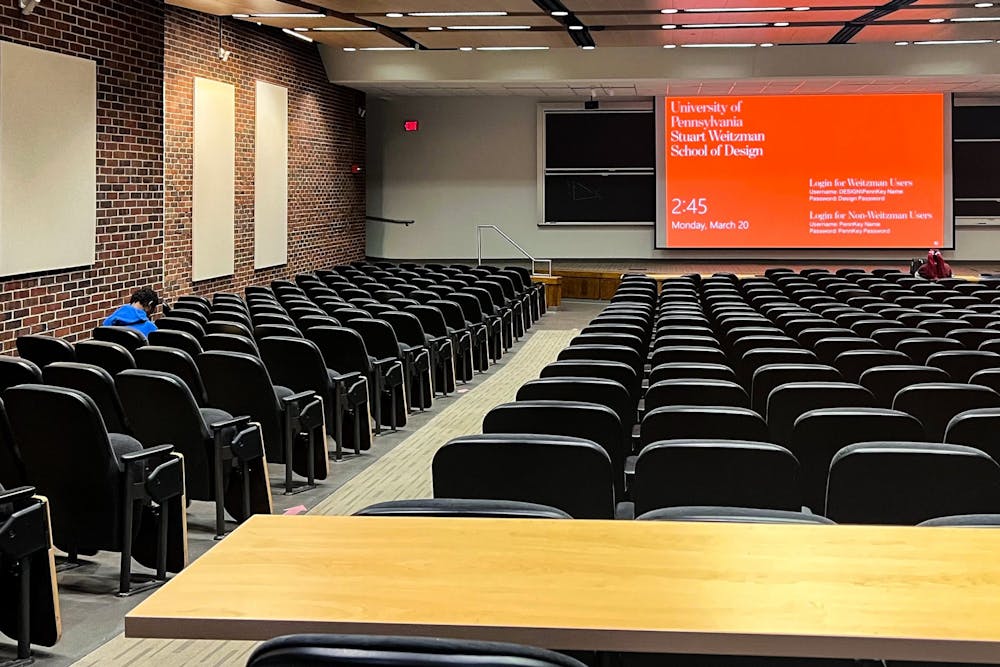The art of listening has been lost in both educational and daily settings, translating into disunity locally and globally. This is evident as seen in the symptoms plaguing the world: polarization, disconnection, nationalism, insensitivity, and the systemic ills that are further propelled by our divisiveness. Listening must be cultivated in transformative education as it is the key to deliberation and problem-solving. To listen is not to merely hear others’ views, but to comprehend and digest what they are saying with responsive efforts. Active listening also enhances one’s ability to convey their own thoughts while learning from others.
Fostering tools for listening in higher education is a pedagogical challenge — such developments of active listening begin in the classroom and transcend beyond school. And yet, professors of higher education, including at Penn, are ill-prepared by their universities to employ pedagogical methods generating such skills.
“One of the things that a lot of us have lost is actually the capacity to hold discussions, especially with people with whom we disagree,” said Jonathan Zimmerman, Penn GSE professor and historian of education, “I think we need to think about the civic dimension of higher ed. We have a duty to try to help people learn civic skills, and I think classroom discussion is integral to that.”
Granted, some professors falsely assume that because students are not experts in their fields of study, student-driven discussion is unhelpful. To that, Zimmerman argued, “Students aren't experts, but that's precisely the reason that they need to talk about it. Not so that they can inform people necessarily, but so they can explore the important issues and try to get their heads around them.” And despite this, conventional lectures are still frequent at Penn.
Transformative education is diverging away from conventional methods of teaching and assessment as they do not stimulate nor model necessary skills such as engaging with one another and listening closely. Traditional pedagogy, such as lecturing, often positions the teacher above the student, detracting from student-led teaching. Students listen to the teacher but are not always listened to — making education less so a matter of dialogue between both the student and the teacher, or students with their peers. It is harmful to omit rich discussion from the classroom, especially if school is meant to be a microcosm representative of the larger society. Students should feel invited and empowered to contribute and learn from their peers.
Researchers are not inherently good presenters, nor educators. Someone may be brilliant in their discipline, but pedagogical knowledge requires a different type of mastery. Simply put, rigors of the classroom cannot be self-taught. Thus, the complex intricacies of teaching necessitates training. As part of the academic system that has a crucial role in societal functionality, educators are obligated to administer the best form of teaching that may only form after generating a tool kit to do so.
But the reality is, higher education neglects teacher training crucial to developing practices that emphasize student collaboration rather than passive reception and regurgitation. This is due to professors’ lack of foundational knowledge surrounding formative teaching techniques beyond the antiquated methods they were exposed to when they were taught, perpetuating a negative cycle of defective teaching that has become normalized in higher education.
The job of a professor is two-fold, teaching and researching. And arguably, executing transformative teaching should be at the forefront of a professor's job. However, there are limitations to this given how research demands of tenure may detract professors from focusing on pedagogical practice that is time-consuming and sophisticated. At Penn, with high expectations for professors to conduct and produce research, standards for ample teaching skills often fall to the wayside at the expense of student benefit.
“That's a fundamental flaw of the universities. We are learning on the job, basically,” Reto Gieré, Earth and Environmental Science professor, said. “They're not teaching us [professors] how to teach,” Political Science Professor Loren Goldman expressed.
At Penn, the Center for Teaching and Learning is intended to help instructors excel as educators through the use of workshops, but its very existence is contradictory. It should be a requirement for professors to be adept at instruction prior to beginning. “The Center for Teaching and Learning reveal[s] the low status of this enterprise. If we actually valued [employing formative pedagogy], we wouldn't need a center devoted to it,” Zimmerman asserted.
“[Penn] teaches people, but it's not focused on teaching,” Goldman has found. “And so they try to do things that make it more amenable by creating a Center for Teaching and Learning. The production of skillful listeners [and] good academic citizens is not what it does at the undergraduate level. Penn sort of teaches people to go off into the world and not be citizens.”
Gieré contended that the nature of the scale of lecture courses pose logistical obstacles to teaching in the way he aspires. He found that the most adequate, integrative teaching style for his discipline would be to “go into nature” to stimulate interactive student discussion beyond recitations. Gieré also attested that student curiosity is consequential, noting that he “think[s] curiosity is a really important aspect of our lives. And that involves asking questions” amongst peers.
“Would it be costly in terms of time and money and energy to alter the system? It would,” Zimmerman acknowledged. “But if we valued it, we would sustain that cost. And the fact that we don't sustain the cost or we're unwilling to show that, we don't value it.”
Essentially, it’s a jarring, systematic flaw that professors are not required to learn how to teach in the process of embarking on a career in academia. Students are not guinea pigs. While paying expensive tuition, they expect to receive valuable education from quality educators. But many students have become so accustomed to their classroom structure that they do not know to expect differently, despite experiencing notions of detachment in content.
In Zimmerman’s book “The Amateur Hour” he discussed how in higher education, “we don't have a standard for what's good. And we don't have a set of systems for enforcing it … nobody's minding the store. It isn't all bad … [but] the point is we don't have systems to really differentiate between [teachers’ quality].” And at institutions like Penn, professionalizing teaching is vastly overlooked; professors feel a lack of incentive that would otherwise not be the case if required to learn pedagogical theories from the get-go of their careers.
Although Penn is a prestigious institution taught by highly esteemed researchers, we cannot continue to fail to criticize insufficient teaching methods. Frequently, Penn opts for big-name researchers to add to their staff in lieu of effective educators. Ultimately, the priority of the university should be teaching — plain and simple.
It's best to end this column with a simple remark from Gieré: "Primarily, we are professors: we should teach."

RIANE LUMER is a College junior studying political science and journalistic writing from Huntingdon Valley, Pa.. Her email address is rlumer@sas.upenn.edu.









